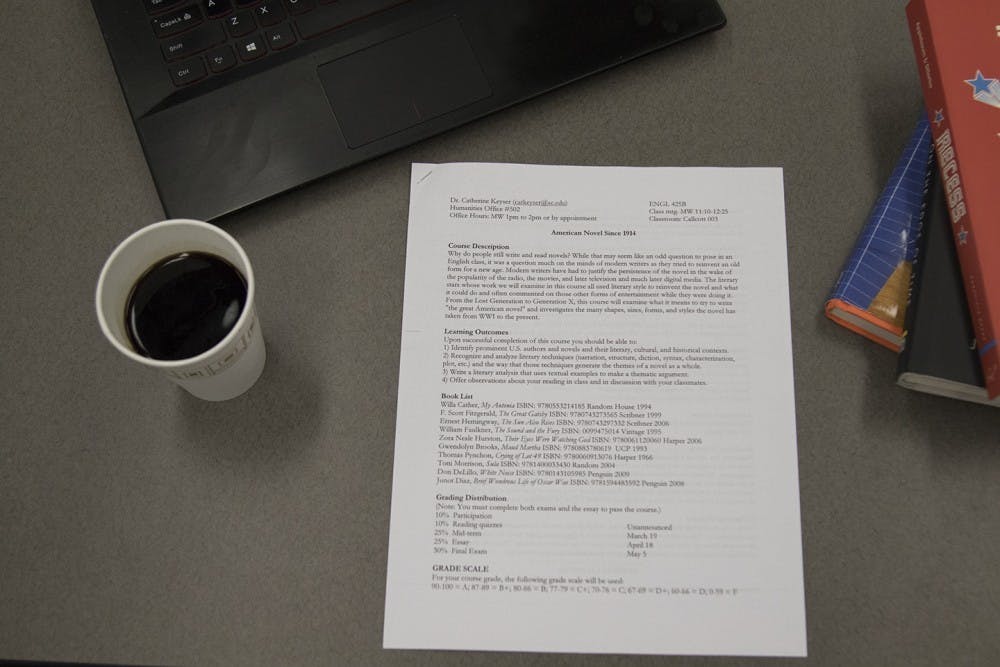We can all agree that having to purchase textbooks for class is unpleasant.
They are expensive, heavy to carry and, in many cases, are hardly used in the course at all. With the advancements in technology that are accessible today, physical textbooks have become an antiquated method to teach in comparison to other, more convenient, options.
Physical copies of textbooks are a hassle to deal with compared to the digital versions offered online. With many people taking a course load of approximately 15 hours, managing the different physical copies of books for five classes is inefficient compared to accessing them all through one instrument, such as a laptop or tablet.
As a sophomore at the University of South Carolina, I personally have found that digital copies of the required material have worked better. Having spent a year and a half here, I have barely used the textbooks assigned in class — in some classes I never even opened the book. The amount of content drawn from the book has been minimal.
In such cases, digital copies have been proven to be the better alternative. On digital copies, it is easy to highlight and search key phrases, instead of wasting time searching though pages for the specific content. Digital copies of textbooks can also be stored on a single laptop or tablet and are thus far easier to transport as well as significantly lighter weight.
Although studies show that students learn more from printed versions of textbooks than digital formats, the content drawn solely from the books is sometimes minimal, with professors incorporating it into lectures and notes in class. Focusing on learning through the lectures and notes, then using digital copies of textbooks as additional sources, is an effective way to study and learn the material.
Another advantage I have found to using digital copies of textbooks has been the cost efficiency. As college students, cost efficiency is a major force driving our decisions. Many students prefer digital copies over physical ones because of the affordability of digital versions. When deciding whether to buy a textbook or not, two major factors that affect my decision are the price of the textbook and whether or not that textbook would be used frequently enough to justify the price. Hardcover textbooks are usually more expensive than the digital versions.
With all the increases in technology, innovative and more efficient methods are being found to do many things. Using the accessibility of digital content is a preferable alternative for most college students than buying physical textbooks. The advantages are many, with online textbooks being conveniently stored on electronic devices.
Heavy, hardcover books are becoming a thing of the past — they are as outdated as CD players.

